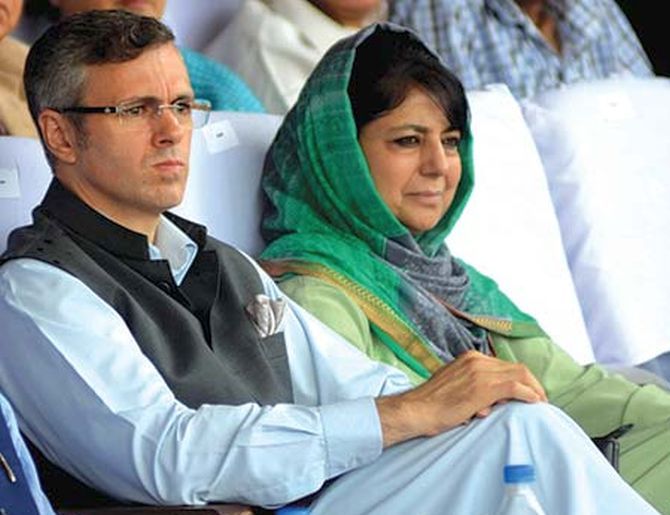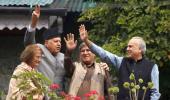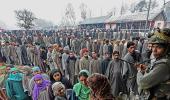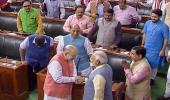'You cannot achieve peace if your objective is not to make political accommodations,' notes Dr Nyla Ali Khan, Sheikh Abdullah's grand-daughter, Dr Farooq Abdullah's niece and Omar Abdullah's cousin.

On February 6, Prime Minister Narendra Modi's government has charged Omar Abdullah and Mehbooba Mufti under the draconian Public Safety Act.
Both Omar and Mehbooba, former heads of government, have been in detention since August 5, 2019.
And now their detentions have been extended by another three months, without formal charges.
In the current situation, the local community in Jammu and Kashmir is unable to exercise any clout and is unable to think constructively about structural change.
With the stifling of civil liberties in J&K, politics is now an abstract notion for the young people in the state, and not a concrete method to bring about long-term reforms.
The translation of a political vision into reality requires diligence and hard work at the grass-roots level, which would produce dynamic indigenous politics. That cannot be achieved through the politics of vendetta.
You cannot achieve peace if your objective is not to make political accommodations.
The federal government of India cannot remain unmindful of the fact that the attitude of inflexibility and intransigence exacerbates conflict in the region.
The powers-that-be do not, then, give first priority to peace but to hold on to what they have got in their possession by any means.
It is because of this that it is incumbent on well-meaning and rational analysts and policy makers in India to clearly fix their objective before they deliberate upon the lack of civil liberties and local politics in J&K.
In Kashmir, rights relating to life, liberty, and freedom of expression guaranteed by the Constitution of India, embodied in the fundamental covenants and enforceable by courts of law, must be protected.
The maneuvers employed by the federal government in Jammu and Kashmir jeopardise the federal structure of India.
The erosion of the rights and privileges of a State is an unhealthy precedent to set in a diverse and federal country. The current curbing of political and civil rights in Jammu and Kashmir is reprehensible.
The communication and information blackout, and incarceration of a large number of people, including elected politicians, in Kashmir have relegated every stakeholder in the state to the background.
In effect, dissenting voices, even those of legislators and parliamentarians of Opposition parties, have been stifled.
In doing so, the federal government has ignored the statute of limitations and Constitutional checks and balances that should have prevented the over centralisation of powers in Jammu and Kashmir.
With the suspension of the legislative assembly of J & K and detention of legislators, the space for young people in Kashmir to reflect on strategies, dialogue, and accommodation, which would bring every stakeholder to the table, has been seriously conscripted.
Our ancestors maintained that the special position accorded to Jammu and Kashmir could alone be the source of a closer association between the State and mainland India. The Constituent Assembly of India took note of the special circumstances in the State and made provisions accordingly.
Firstly, the autonomous status for Kashmir as envisaged by the Constitution of India was not a favour to us, but an acknowledgement of the special circumstances that constitute a part of our past and future.
Secondly, autonomy was not meant for Kashmiri Muslims alone, but for the Hindus of Jammu, the Buddhists of Ladakh, and the Sikhs and Christians of the state as well.
In Kashmir, rights relating to life, liberty, and freedom of expression guaranteed by the Constitution, embodied in the fundamental covenants and enforceable by courts of law, have been flouted.
Author and academic, Professor Nyla Ali Khan is commissioner of the Oklahoma Commission on the Status of Woman, USA. Her latest book is Sheikh Mohammad Abdullah's Reflections on Kashmir. She was raised in Kashmir.











 © 2025
© 2025